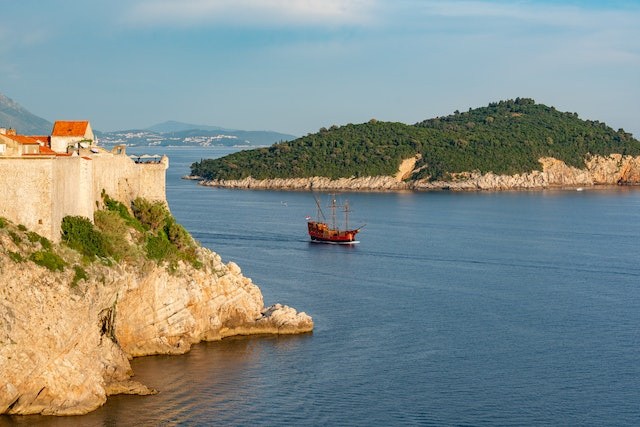Concerns regarding the potential impact of projected deep seabed mining on deep-sea habitats and ecosystems are common around the world.
Considering concerns that the new, unproven business could inflict ecological destruction in the absence of further research and explicit safeguards, Canada has joined a growing number of countries calling for a halt to deep-sea mining in international waters.
Happening in deep sea mining

Mining in the deep ocean entails removing and frequently excavating mineral deposits. About two-thirds of the seafloor is made up of the deep bottom, which is the ocean floor at depths greater than 200 meters, as per IUCN.
Deep-sea mining has the potential to seriously affect marine biodiversity and ecosystems, according to research, but we now lack the knowledge and resources to put safeguards in place.
The mineral resources on the seafloor continue to attract attention despite this. This is allegedly caused by the depletion of terrestrial metal resources, including those for copper, nickel, aluminum, manganese, zinc, lithium, and cobalt. Technology like cellphones, wind turbines, solar panels, and batteries are increasing the demand for these metals.
Also Read: Experts Claim Deep Sea Mining in the Pacific Ocean May Result in Environmental Repercussions
Canada pause for deep sea mining
The declaration aligns Canada with several European countries, scientists, environmental groups, and even automakers like BMW and Volvo, as well as battery giant Samsung, which have all vowed not to employ deep-sea minerals in their vehicles, as per The Guardian.
This week, deep-sea mining was also halted by seafood organizations that represent a third of the global tuna trade.
The Canadian government announced in February that it would not legalize deep-sea mining in its territorial seas due to worries that it lacked a legislative framework for issuing permits.
Deep-sea mining proposals will have disastrous effects on marine ecosystems, the European Academies Science Advisory Council said in June.
Concerns raised by experts include sediment plumes, noise, vibration, and light pollution, as well as the potential for fuel and other chemicals used in mining to spill.
As silt discharged into the ocean in video footage from a deep-sea mining test in February, concerns were raised about the industry's safety measures and the potential consequences mining could have on ecosystems, which experts are still working to better understand.
The Clarion-Clipperton Zone, the area sought after by deep-sea mining companies, has just seen the discovery of 5,000 new species.
According to Susanna Fuller, vice-president of conservation and projects at environmental nonprofit Oceans North, the success of previous international agreements has also shown that we can no longer exploit new areas while upholding our duties to safeguard biodiversity.
Companies have promoted the idea of mining the ocean floor as a method to reduce the need for the metals required to make the switch away from fossil fuels, but Fuller claims much can be done on land before venturing into uncharted territory.
Pause reduces ecological destruction
Deep sea mining have significant negative environmental effects due to their size and devastation. A complete environmental impact assessment cannot be performed due to a lack of data, and it is unknown how much of an impact there will be on the ecosystem and the climate. All of this strongly suggests that ending deep-sea mining becomes both urgent and crucial, as per WWF.
The value of the ocean goes beyond the cost of its limited resources. Any short-term incentives provided by deep sea mining pale in comparison to the inherent long-term advantages of a healthy ocean. Opening up this new area for extraction would seriously weaken the circular ocean economy and threaten the delicate ocean ecosystems.
Related Article: Scientists Study the Impact of the Deep Sea Mining on Oceans
© 2026 NatureWorldNews.com All rights reserved. Do not reproduce without permission.





